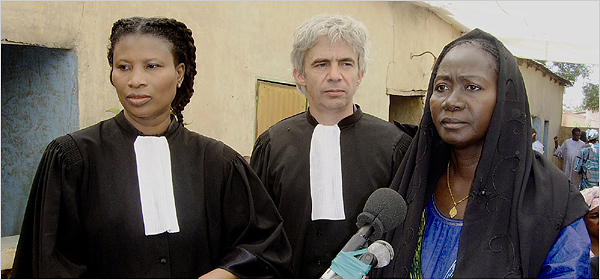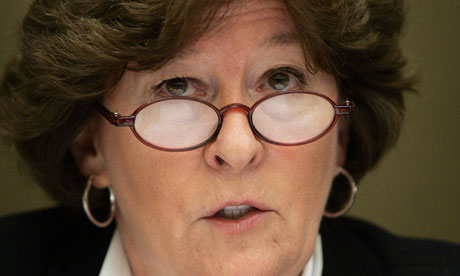The past few decades have witnessed a burgeoning literature examining the economic dimensions of modern warfare. Indeed, if Prussian general and military theorist Carl von Clausewitz could argue in 1832 that war is merely a continuation of politics by other means, more recent studies seem to suggest that modern conflict is often as much, if not more, a continuation of economics by other means.
For international criminal lawyers, the question that naturally arises from such studies is the extent to which international criminal law can and should address the economic dimensions of mass atrocity situations. With this question in mind, this post summarises three perspectives from which scholars and practitioners have been examining the potential and limits of international criminal law as a response to the political economy of mass atrocity situations.
The Critical Perspective: Illuminating the Structural Economic Causes of Violence
Beginning with the most critical literature, a number of studies have sought to illuminate the economic aspects of conflicts that international criminal law is least equipped to confront: the structural economic causes of violence. Structural causes of conflicts, whether political or economic, often fall beyond the purview of international criminal law since they are generally too remote to be of legal relevance to the culpability of the defendants on trial.
As such, international criminal law has tended to be blind to factors as diverse as land distribution, extreme poverty, demographics, social marginalisation, and widespread economic injustice, all of which may be brought about by the normal operation of the global economy. As Mégret has provocatively put it, international criminal law has been at permanent risk of grossly underestimating “such trivialities as the world’s billion poor, 800 million hungry, 2.4 billion without sanitation, or 90 million children without basic education”. Whilst these forms of extreme structural violence are generally not sufficient causes of mass atrocities, it is widely accepted that deeply embedded inequalities have often pre-existed the onset of violent conflict.
In addition, the interventions of the International Monetary Fund and the World Bank in conflict-affected societies have also fallen beyond the reach of international criminal law. In this regard, a range of studies relating to the former Yugoslavia, Rwanda and Sierra Leone have illuminated how the structural adjustment programmes advocated by these international financial institutions may have compounded rather than assuaged already volatile situations, primarily as a result of being implemented in disregard of the social and political sensitivities of the countries in question.

Abderrahmane Sissako’s 2006 film Bamako, a fictional story in which the World Bank is put on trial in Mali (Photo: New Yorker Films)
Finally, humanitarian aid agencies have also escaped the attention of international criminal law. Often intervening in conflict situations under a veil of neutrality and benevolence, recent studies have suggested that humanitarian aid agencies have at times exacerbated rather than alleviated situations of structural violence (for example, social inequality and land concentration in Rwanda) as well as repressive governmental policies (for example, the forced displacement of the Acholi population in Uganda). The failure to scrutinize such behaviour has resulted in what Alex de Waal has famously referred to as “humanitarian impunity”.
It should be emphasised that most of these studies do not suggest that interrogating the structural economic causes of violence or the interventions of international financial institutions or humanitarian aid agencies should fall within the purview of international criminal law. Rather, they seek to reveal the constructed invisibility of these economic factors within international criminal law processes in an effort to illuminate the limits of the criminal law as a policy response to episodes of mass violence. For these scholars, the solution is not necessarily to reform international criminal law, but to look beyond it.
The Rights Perspective: Reading Economic, Social and Cultural Rights into International Criminal Law
In 2006, then-UN High Commissioner for Human Rights, Louise Arbour, delivered a landmark lecture in which she lamented the marginalization of addressing gross violations of economic, social and cultural rights (ESCR) within the field of transitional justice. Arbour argued that this neglect was “symptomatic of a deep ambivalence within justice systems about social justice” as well as the fact that ESCR were often mistakenly seen “not as entitlements but merely as aspirational goals whose achievement no one can be held accountable for”. In response to this situation, Arbour issued a call for action, including a specific call for further research on the adjudication of ESCR violations as international crimes.

Louise Arbour, former UN High Commissioner for Human Rights (Photo: Fabrice Coffrini/AFP/Getty Images)
Since then, a number of scholars have taken up Arbour’s challenge. Particularly notable in this regard is the recent book by Evelyne Schmid, which sets out to demonstrate the overlap between ESCR violations and the existing definitions of international crime categories. Whilst acknowledging the limits of the overlap, Schmid’s study is significant for undermining the widespread belief that ESCR are not and cannot be dealt with by existing international criminal law.
One example, which illustrates the potential of international criminal law to address violations of ESCR, is the war crime of pillage. As far back as Nuremberg, the war crime of pillage has been applied to situations involving the systematic exploitation of natural resources. Such precedents reflect the potential of this war crime to at least partially address ESCR violations associated with the so-called “resource curse” that tends to underpin many modern-day conflicts.
Yet, despite these early precedents, pillage charges at more recent international criminal courts have consistently overlooked its application to illegal resource extraction. For instance, whilst Charles Taylor was convicted of aiding and abetting pillage in Sierra Leone, his conviction was limited to traditional looting of personal property rather than the systematic exploitation of diamonds and other natural resources that characterised the conflict more generally. As such, some scholars have considered the case to represent somewhat of a missed opportunity, particularly in terms of constructing a convincing narrative of the underlying conflict.
In light of such examples of prosecutorial and judicial reticence, an important task for scholars and practitioners going forward will be to identify which ESCR violations should be prioritized within prosecutorial strategies under existing statutory frameworks, as well as which factual scenarios may benefit from the adoption of more tailored international crime definitions that are better equipped to meet the empirical realities of modern conflicts.
The Business Perspective: Prosecuting Commercial Actors Implicated in International Crimes
Last, but by no means least, a range of studies have recently explored in what circumstances international criminal law can hold commercial actors responsible for their participation in the commission of international crimes. Examples of the linkage between commerce and atrocity are plentiful. They include: the use of slave labour in business supply chains; the involvement of corporations in the pillage of natural resources; the involvement of private security firms in acts of torture; and fuelling the commission of atrocities through the supply of goods and services to armed groups.
When considering the international criminal responsibility of commercial actors, it is important to distinguish between the responsibility of individual business leaders who work for private corporations, and the responsibility of corporate entities per se. In either case, however, aside from the trials of German industrialists in the aftermath of the Second World War and a few other isolated cases, to date there has been near-perfect impunity for both corporations and business leaders implicated in the commission of international crimes.
One reason for this marginalization may reside in the fact that corporate entities per se have consistently fallen outside the personal jurisdiction of international criminal courts (although it is important to remember that several domestic criminal courts have been granted jurisdiction over such entities, as has the yet-to-be operationalised African Court of Justice and Human Rights). Another reason may be the focus of international criminal courts on those “who bear the greatest responsibility” for crimes within their jurisdiction, a criterion that has tended to exclude the prosecution of corporate actors.
Regardless of the precise reason behind the marginalization, arguably more significant is the recent surge of activity amongst scholars and civil society groups concerning how to reignite the liability of commercial actors for international crimes.
Amongst civil society, particularly notable is the landmark study by the International Commission of Jurists, which explored various forms of corporate complicity in the commission of international crimes. More recently, the International Corporate Accountability Roundtable (ICAR) and Amnesty International have launched a project that specifically aims to address the challenges of prosecuting corporate crimes, including but not limited to international crimes.

In 2003, former ICC Prosecutor Luis Moreno-Ocampo confirmed that his office would work together with national investigators and prosecutors to determine the contribution, if any, that businesses had made to the commission of crimes in the Democratic Republic of the Congo. (Photo: Reuters/Jerry Lampen)
At the ICC, the Office of the Prosecutor previously committed to encourage and support national prosecutions of corporate representatives, initiating a network of national law enforcement agencies for the purpose (LEN). Whether the Prosecutor will also take the further step of launching thematic prosecutions against individual business leaders within conflict situations currently under investigation at the ICC remains to be seen.
These efforts have also been supported by ongoing research conducted in the academic sphere. For instance, the Journal of International Criminal Justice hosted an important special issue on the subject, whilst James Stewart has very much been leading the charge with a range of papers and symposia, encouraging a collaborative and inclusive approach to the topic.
In light of this recent surge in research, some initial challenges to corporate prosecutions have already been identified. At the domestic level, the greatest challenge may end up being a lack of political will, particularly given that both home and host States may have vested interests in turning a blind eye to corporate involvement in atrocities. More generally, Grietje Baars has argued that efforts to prosecute corporate actors are likely to lead only to “cosmetic changes on the surface of ongoing corporate involvement in conflict”, whilst at the same time serving “to actualize, legitimate and thus strengthen” existing structures of corporate authority within global governance.
Despite these challenges, the conviction continues to gain momentum that commercial actors are the business of international criminal law, with considerable efforts now underway to make criminal prosecutions a reality. Only time will tell whether such efforts will bear fruit in practice.
Conclusion
For a long time, it was widely believed that the economic dimensions of mass atrocity situations were somewhat of a blind spot of international criminal law. Yet, as this post has revealed, these dimensions are gradually becoming mainstreamed within international criminal research projects, which have begun to examine both the limits and potential of using international criminal law to address various economic aspects of mass atrocity situations.
And while it remains to be seen whether these projects will manage to spark a shift in international criminal practice, it is clear that confronting at least some of the economic dimensions of mass atrocity situations is now very much on the agenda of those working in the field.



Reblogged this on cautivadulce.
Pingback: EJIL: Talk! – Book Discussion: Introducing Taking Economic, Social and Cultural Rights Seriously in International Criminal Law
Pingback: EJIL: Talk! – Book Discussion: Part of the Solution or Part of the Problem? International Criminal Justice and the Fragile Divide between Civil/Political and Economic, Social and Cultural Rights